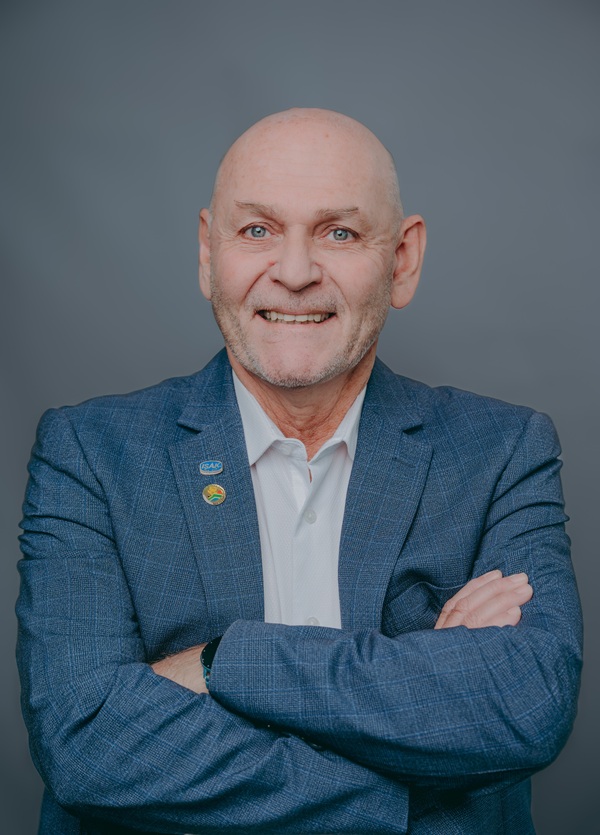South Africans are still basking in the glow of the Springboks’ emphatic 43–10 dismantling of the All Blacks in the Rugby Championship. It was a win that restored pride, silenced doubters, and reaffirmed South Africa’s place at the summit of world rugby.
Now the Springboks will host Argentina in Durban as Rassie Erasmus’ men look to defend their Rugby Championship crown in the coming two weeks.
Yet, in between the moments of brilliance, the crowd’s patience is often tested by those now-familiar stoppages for Head Injury Assessments (HIAs). Supporters groan when a star player is led off, frustrated by the interruption. What many fail to realise is that those pauses are not trivial, they are safeguards against tragedies that may unfold long after the final whistle.
Few have spent more time studying this balance of triumph and tragedy than Professor Hans de Ridder of North-West University (NWU). A leading researcher in sports science, he argues that concussions are not inconveniences but “traumatic brain injuries caused by biomechanical forces, often rotational accelerations, transmitted to the brain.” In rugby, football, hockey and boxing, he notes, “these forces are frequent and often celebrated as part of the game’s intensity.”
Prof de Ridder is clear-eyed about the risks. “No helmet or technique can fully eliminate concussion risk, especially in high-impact sports,” he explains. The culture of “toughing it out” is one of the sport’s greatest dangers. “Athletes often push through pain for the sake of victory, team loyalty or career advancement. This creates a psychological conflict: short-term glory versus long-term cognitive health.”
The ethical response, he believes, is straightforward. “From a duty-of-care perspective, coaches, trainers and organisations must prioritise health over performance. Athletes must be fully informed about the risks. Glory should not come at the cost of irreversible neurological damage.”
Research is painting an increasingly grim picture of repeated head trauma. “Neurophysiology shows that repeated concussions - even sub-concussive impacts - can lead to chronic traumatic encephalopathy, memory loss, depression and motor dysfunction,” says Prof de Ridder. Sport scientists, he notes, are working not only to identify early biomarkers of brain trauma but also to “develop rehabilitation protocols and return-to-play guidelines based on objective data.”
South Africa has aligned itself with World Rugby protocols through SARU and BokSmart. But Prof de Ridder points to innovations abroad, particularly in New Zealand. “New Zealand Rugby has developed a Brain Health and Concussion Risk Management
Framework that is both science-driven and adaptive,” he explains. “Instrumented mouthguards measure head impact forces in real time, while the ‘blue card’ system empowers referees to remove players at the first suspicion of concussion.”
South Africa is experimenting with similar technologies, such as NeuroFlex® virtual reality and SCAT6 protocols. But Prof de Ridder believes more can be done: “New Zealand includes players, parents and medical staff in its education strategy. South Africa could benefit from broader community-level education tailored to local languages and cultural contexts.”
He also highlights collaboration opportunities. “The NWU is investigating a possible agreement with Lincoln University in Christchurch, led by Prof Mike Hamlin. Shared research, joint training programmes and pooled data could help us better understand concussion recovery and long-term outcomes.”
For Prof de Ridder, the issue is not confined to elite sport. “A concussion isn’t just a bump or a bruise. It’s a brain injury. Even if you feel fine, the effects can linger silently, affecting memory, mood, sleep and future performance.”
He warns that young athletes are particularly vulnerable: “Children and teens take longer to recover and are more susceptible to long-term damage. Many youth sports lack proper medical oversight, which increases the risk of undiagnosed or mismanaged injuries.” The impact, he says, extends well beyond the individual: “Concussions affect not only the athlete, but their families, teammates and communities. Behavioural changes and cognitive decline can strain relationships and reduce quality of life.”
To young athletes and their parents, Prof de Ridder offers a simple credo: “Play smart, stay strong.” He elaborates: “Your love for the game builds discipline, character and lifelong friendships. But with passion comes responsibility—to protect the most important part of your body: your brain. Real strength is knowing when to rest. Sitting out today could mean playing strong tomorrow.
The final word, for Prof de Ridder, is about changing what we value in sport. “The balancing act isn’t about choosing between glory and safety, it’s about redefining glory to include sustainable performance and long-term well-being.”
As the Rugby Championship continues and South Africa prepares to face Argentina, this recalibration matters. Supporters will once again roll their eyes when a player disappears down the tunnel for an HIA. But each of those moments is a quiet triumph of its own. It is a necessary safeguard that allows heroes of today to remain healthy long after the roar of the crowd has faded.
*The Centre for Health & Human Performance (CHHP) at North-West University will host a landmark event on brain health and concussion management in Potchefstroom on 26 and 27 September 2025, bringing together an exceptional line-up of international and
South African experts. Over two days, delegates will gain access to cutting-edge research, clinical insights, and practical strategies in this rapidly evolving field.
Keynote speakers include Dr Theo Farley of University College London, Prof Mike Hamlin of Lincoln University in New Zealand, and Dr Pierre Viviers of Stellenbosch University, alongside leading South African voices such as Prof Pieter Kruger, Prof Hans de Ridder, Prof Greg Lamb, Hanlie Degenaar, Megyn Robertson, and Elaine Burger. Their expertise spans sport science, physiotherapy, biokinetics, psychology, medicine, speech-language therapy, and paediatric neurology.
The programme features lectures, case-based discussions, hands-on workshops, and an “Ask the Experts” panel exploring innovations and challenges in concussion care. This multidisciplinary gathering highlights the responsibility of health, sport, and clinical professionals to remain current with concussion research and protocols, ultimately ensuring the wellbeing of patients, athletes, and communities.

Prof Hans De Ridder
